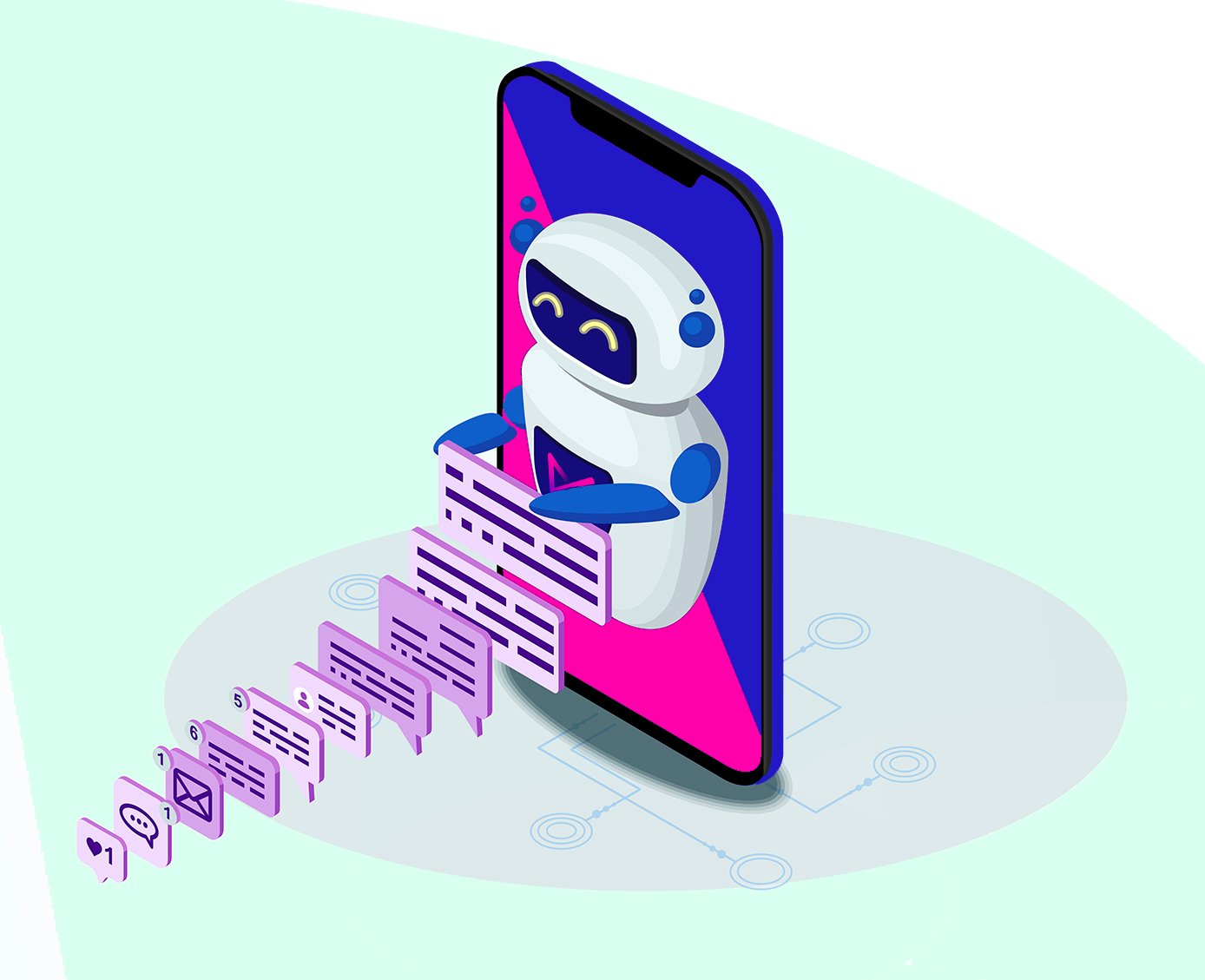Ways AI is Changing Call Centres
Artificial Intelligence (AI) has become a popular topic in the business world, revolutionising various industries, and the call centre sector is no exception.
In this article, you will learn about how AI will transform call centres and much more.
AI technology has gained significant attention as the demand for more efficient and personalised customer service grows. We will explore the history of AI in call centres, discuss its current applications, and the impact it has on the industry.
Why is AI Such a Big Topic Right Now?
AI has appeared as an important topic of interest due to its potential to enhance customer experiences, simplify operations, and increase efficiency within call centres.
Did you know that contact centres using AI for customer service can attack more than twice as many calls as call centres that don't use AI? (source: Dialpad).
AI offers innovative solutions to improve response times, optimise agent workflows, and deliver personalised interactions at scale.
With advancements in natural language processing (NLP), machine learning, and data analytics, AI has reached a level of sophistication where its integration into call centre operations can provide significant benefits.
The History of AI in Call Centers
AI's journey in call centres began several years ago with the introduction of interactive voice response (IVR) systems.
These automated systems allowed customers to navigate menus and access information through voice commands, reducing the need for human intervention.
Over time, AI capabilities expanded to include chatbots, virtual agents, and sentiment analysis tools.
These technologies aimed to mimic human-like interactions and automate repetitive tasks, ultimately enhancing the overall customer experience.
What Are the Benefits of Using AI in Call Centres?
AI offers a wide range of benefits for call centres, such as enhancing efficiency, improving customer satisfaction and reducing idle time. Here are 5 benefits of using AI in a call centre:
- AI improves customer service: AI provides quicker support to customers with 24/7 availability and instant response times.
- AI increases productivity: AI provides agents with information and suggestions during customer interactions. It also takes some stress away from agents by answering calls so that agents can focus on what they do best.
- AI enhances operational efficiency: AI works by handling repetitive tasks and freeing up agents' time.
- Reduces costs: AI can handle a large number of inquiries and calls, which can reduce the need for additional human agents.
- Enhanced data insights: AI works by analysing customer interactions across different touchpoints, which can provide an overall view of the customer journey.

AI's Current Applications in Call Centres
Now more than ever, AI is becoming increasingly popular thanks to its capabilities and ability to simplify operations. Here is a brief overview of AI’s current applications in call centres:
1: Intelligent Routing
AI-powered systems analyse incoming calls and direct them to the most appropriate agent based on customer history, language preferences, and skill sets.
This ensures customers are connected to the right agent, minimising transfers and improving first-call resolution rates.
2: Chatbots and Virtual Agents
AI-driven chatbots provide instant customer support by answering frequently asked questions, resolving common issues, and handling basic inquiries.
These virtual agents can operate across different communication channels, such as websites, messaging apps, and social media, providing round-the-clock assistance.
3: Sentiment Analysis
AI algorithms can analyse customer interactions, including phone calls and chat transcripts, to calculate customer sentiment and emotional state.
This information helps call centre managers identify improvement areas, train agents more effectively, and identify potential customer churn.
4: Speech Analytics
AI-powered speech recognition technology transcribes and analyses customer-agent conversations by gathering valuable insights.
Call centres can use this data to monitor agent performance, identify training needs, and better understand customer preferences and pain points.
5: Predictive Analytics
AI can predict customer behaviour, identify patterns, and anticipate customer needs through the use of customer data.
Call centres can use this information to address customer concerns, personalise interactions, and offer tailored recommendations, improving customer satisfaction.
With the ability to automate tasks, analyse data, and facilitate personalised interactions, AI technology allows call centres to provide efficient and enhanced customer experiences.
As we move further into 2024, the integration of AI in call centres will continue to evolve, encouraging businesses to meet the demands of their customers and stay ahead of their competition.
In the last couple of years, many significant advancements have occurred for AI in call centres. Here are some of the many changes:
Advancements in Natural Language Processing (NLP)
NLP has made remarkable progress, enabling AI systems to understand better and respond to natural language queries.
Call centres now employ AI-powered chatbots and virtual agents that can engage in more sophisticated and context-aware conversations with customers, providing a more seamless and personalised experience.
Enhanced Voice Recognition Technology
Speech recognition capabilities have significantly improved, allowing AI systems to accurately transcribe and analyse customer-agent conversations.
This advancement has facilitated the widespread adoption of speech analytics tools, enabling call centres to gain deeper insights into customer interactions and agent performance.
Integration of Machine Learning
Machine learning algorithms have become more sophisticated and capable of analysing vast amounts of data to identify patterns and make predictions.
Call centres leverage this technology to automate processes, optimise agent workflows, and deliver proactive customer service.
Machine learning algorithms can also provide personalised recommendations to customers and agents, enhancing overall efficiency and satisfaction.
Expansion of Omnichannel Capabilities
AI-powered solutions have evolved to support omnichannel communication, enabling call centres to provide seamless customer experiences across multiple channels, such as phone calls, live chat, social media, and email.
AI systems can now integrate and analyse data from various channels, ensuring consistent and personalised interactions regardless of the customer's preferred communication method.
Emphasis on Emotional Intelligence
Recent developments in AI have focused on enhancing emotional intelligence capabilities. AI systems can now recognise and interpret customer emotions through voice tone analysis, sentiment analysis, and facial expression recognition.
This enables call centres to provide empathetic and tailored responses, improving customer satisfaction and loyalty.
Increased Adoption of AI-Assisted Agent
Rather than replacing human agents, AI is increasingly used to assist and empower call centre agents. AI-powered tools provide real-time guidance, knowledge base access, and suggested responses to agents, enabling them to provide more accurate and efficient support.
This collaboration between AI and human agents improves agent productivity and augments their expertise, leading to higher-quality customer interactions.
Enhanced Data Security and Privacy Measures
As AI systems handle sensitive customer data, there has been a greater emphasis on data security and privacy.
Call centres have implemented robust security protocols and compliance measures to protect customer information.
AI algorithms are designed to ensure data anonymity, encryption, and adherence to regulatory requirements, safeguarding customer trust.
These recent advancements in AI technology have transformed how call centres operate, resulting in improved efficiency, enhanced customer experiences, and increased agent effectiveness.
As AI continues to evolve, we can expect further innovations shaping the future of call centres and customer service.
Will AI Replace Call Centres?
So the big question is… will call centres be replaced by AI?
Many people have been questioning the possibility of AI completely replacing call centres. Well, the honest answer is not entirely.
While AI has revolutionised the call centre industry, human touch and expertise still play a vital role in customer service.
Even though AI can handle a wide range of calls, there will always be certain issues that AI can’t solve. Although AI is a great addition to call centres, most people will want to talk to a live agent at some point.
This is ideal because it provides agents with more time to deal with more complex calls. Now, although this is a huge benefit for call centres, it also means that fewer agents will deal with live calls.
Overall, AI can:
- Simplify tasks
- Help with faster response times
- Provide customers with a better first-call resolution
So, if you want to automate tasks and increase productivity within your call centre, AI can help.
But remember, it is also ideal to have live agents at the ready in case the customer wants to speak to a human.

How Can You Use AI in Call Centres?
AI offers many applications that can significantly enhance call centre operations and customer experiences. Let's take a closer look at each effective use of AI in call centres:
Use 1: Intelligent Routing
AI-powered intelligent routing systems analyse customer information and call context to connect callers with the most suitable agent.
By considering factors like customer history, language preferences, and agent skills, AI ensures that customers are routed to the right person, minimising transfers and first-call resolution rates.
MaxContact takes intelligent routing to the next level to ensure your customers are seamlessly connected with the best agent for their needs.
Use 2: Chatbots and Virtual Agents
Chatbots and virtual agents have become increasingly popular in call centres, providing instant support and answering common queries.
AI-driven chatbots can:
- Handle basic inquiries
- Resolve simple issues
- Assist in transactions
This is ideal as they can free up human agents to focus on more complex tasks. We leverage AI to deliver efficient and personalised self-service options, empowering your customers and boosting agent productivity.
Use 3: Sentiment Analysis
AI-powered sentiment analysis tools analyse customer interactions to measure emotions and sentiments expressed during calls or chat conversations.
Understanding customer sentiment allows call centres to identify areas for improvement, train agents more effectively, and mitigate potential customer churn.
Our advanced analysis solution provides actionable insights to create emotionally intelligent customer interactions.
Use 4: Speech Analytics
AI-driven speech analytics technology transcribes and analyses customer-agent conversations, unlocking valuable insights.
Call centres can use this data to monitor agent performance, identify training needs, and better understand customer preferences and pain points.
Our advanced speech analytics tool helps extract meaningful information from conversations to optimise your call centre operations.
Use 5: Predictive Analytics
Call centres can use historical data and machine learning algorithms to:
- Predict customer behaviour
- Identify patterns
- Anticipate needs
This allows for proactive customer engagement, personalised interactions, and targeted recommendations.
With our AI-driven solution, you can stay one step ahead, delivering exceptional customer experiences based on data-driven predictions.
Interested In AI For Your Call Centre? Why Not Try A Free Demo?
If you're intrigued by the potential of AI in your call centre, we invite you to experience it firsthand.
Sign up for a free demo of our MaxContact AI solutions today and witness how our cutting-edge technology can transform your customer service operations.
While AI won't completely replace call centres, it is revolutionising the industry by augmenting agent capabilities, streamlining processes, and enhancing customer experiences.
Embracing AI in your call centre can improve efficiency, customer satisfaction, and a competitive edge. So, why not embrace change and the power of AI to unlock your call centre's full potential?
For more information, don’t hesitate to contact us, we are more than happy to help!
.png)
From the blog







